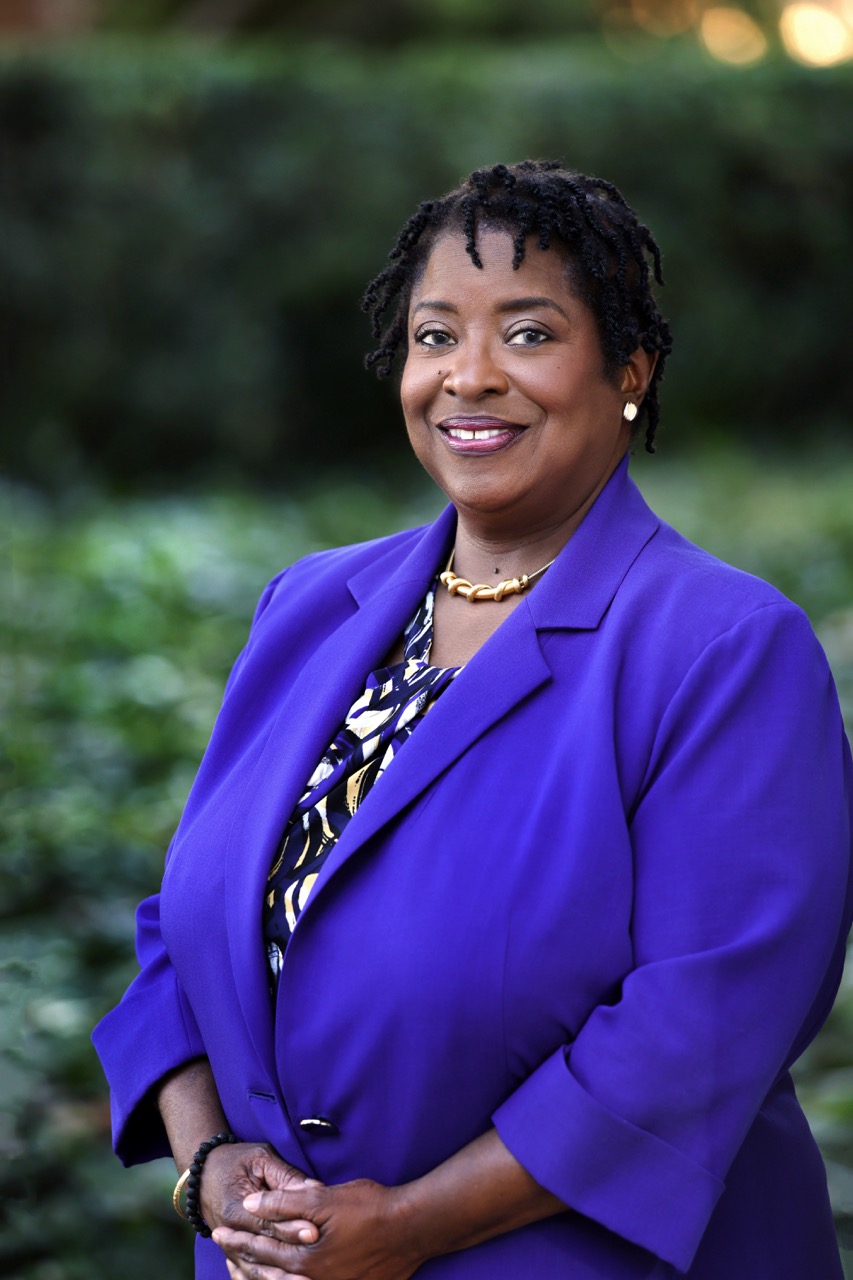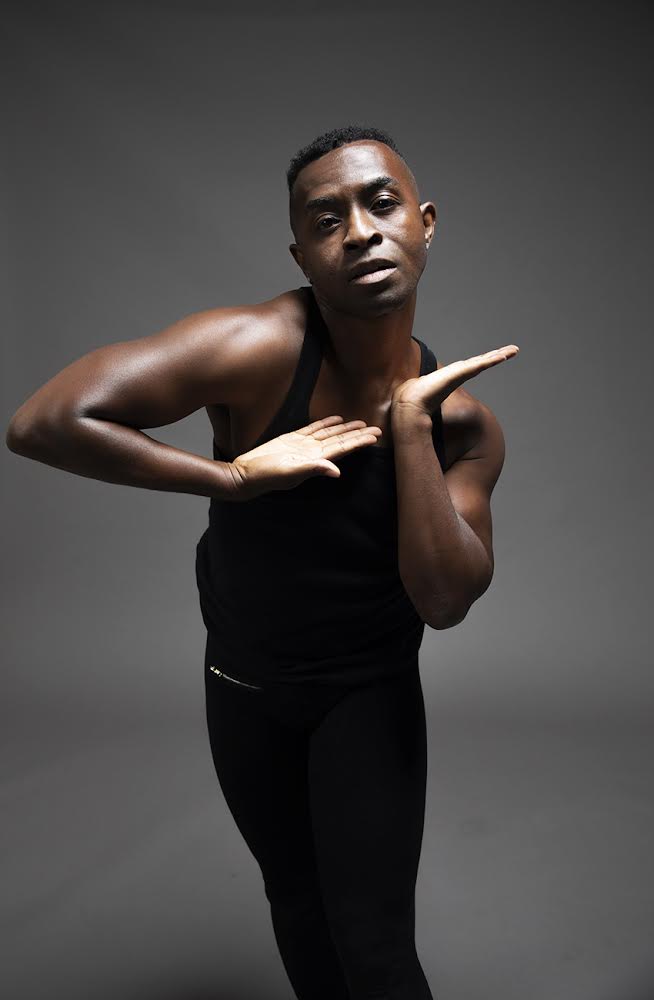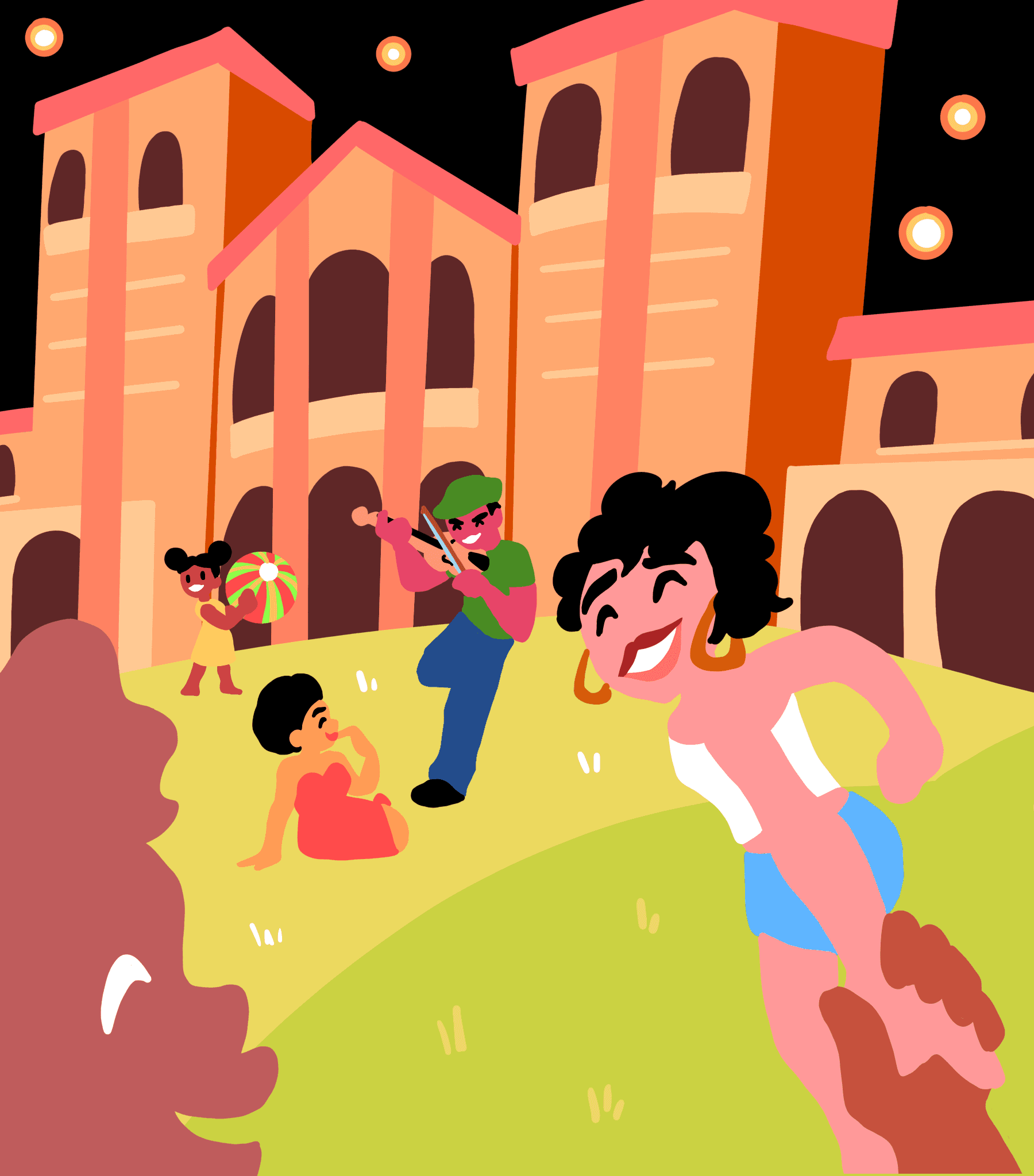UCLA Juneteenth celebration honors Black history through music, dance, spoken word
(Sid Francis/Daily Bruin)
“Prelude to ... JUNETEENTH DAY CELEBRATION”
Royce Hall
June 5
7:00 to 10:00 p.m.
By Reid Sperisen
June 2, 2024 5:34 p.m.
This post was updated June 4 at 7:50 p.m.
For UCLA’s Department of African American Studies, celebration and remembrance are equally important ahead of Juneteenth.
On Wednesday, Royce Hall will welcome artists from across the nation for the first “Prelude to … JUNETEENTH DAY CELEBRATION,” a free multimedia art event that will feature music, dance and spoken word performances to tell the history of emancipation in the United States. Juneteenth, which is celebrated June 19, honors the day in 1865 when enslaved people in Galveston, Texas, were informed of the 1863 Emancipation Proclamation and their subsequent freedom. Cheryl L. Keyes, who holds a doctoral degree in ethnomusicology and folklore, is the chair of the Department of African American Studies and said she was the sole producer and conceptual creator of “Prelude to … JUNETEENTH DAY CELEBRATION.”
“Putting together all of these facets to help to crystallize and to express the Black experience in the United States and neighboring areas – it all kind of came as a vision to involve and to get the representatives in artists who can best elucidate, explain through their performances, these experiences,” Keyes said.
Keyes, an ethnomusicology and global jazz studies professor, said she wants the event to be a reflection of the diasporic nature of the African American Studies department. She said the department does not solely focus on Black culture and history in the U.S. but also includes the study of Africa and the African diaspora through the scholarship of faculty from areas such as the Caribbean, Africa and across the U.S. Keyes said she hopes the extensive planning that went into the event over the past year engages the community.

It is significant for the event to take place at Royce Hall because of the building’s relationship with the presence of Blackness at UCLA, Keyes said. In September 1969, the UC Board of Regents and then-Gov. Ronald Reagan fired professor Angela Davis on the basis of her being a member of the Communist Party. Davis’ case received national attention when she was reinstated by a California Superior Court judge and subsequently delivered a lecture at Royce Hall to more than 2,000 people less than a month later. Keyes said Davis’ advocacy for freedom of speech made it possible for Royce Hall to become a more inclusive and democratic event space on campus.
[Related: Encampment led by students in support of Palestine begins outside Royce Hall]
The program for the “Prelude to … JUNETEENTH DAY CELEBRATION” event will be divided into three parts, Keyes said, starting with the history before the transatlantic slave trade with the Mali Empire in West Africa. Keyes said she was inspired to create her own orchestral composition about the life of Sundiata Keita – who founded the empire of Mali in the 13th century – after she studied him while in graduate school. Her original piece, called “Sundiata Keita Overture,” will premiere at the event, Keyes said.
The rest of the program’s opening section will continue to celebrate life in Africa before shifting to address the transatlantic slave trade, the turbulence of slavery and the 1960s, Keyes said. The second portion of the program incorporates an array of musical genres from spirituals and blues to jazz, Keyes added. The third portion is more contemporary and honors hip-hop, she said, which connects to Los Angeles’ role as a hub for underground hip-hop and freestyle culture. Lastly, the event will end on an uplifting note, Keyes added.
“We take it home with Curtis Mayfield’s ‘Move on Up,’ which I find to be quite appropriate,” Keyes said. “It is an encouraging type of song for the struggles of Black people then and the hope for today and the future.”
Keyes said the second portion of the program will also include the premiere of “Symphony #4 Juneteenth Symphony (Identity 34:1)” by composer Earl Louis Stewart. A professor emeritus in Black Studies at UC Santa Barbara, Stewart said he was motivated to start writing what would become the first movement of the symphony while he was living in Ghana and celebrating Juneteenth alongside other emigrants. He said he made extensive progress on the symphony in a three-week period in the early 1990s – more than a decade after the idea first came to him in graduate school. He then made occassional tweaks throughout the years. The composition strives to symbolize both the anxiety freed enslaved people felt during Juneteenth as well as their faith and resilience, he added.
“I don’t want us to forget where we came from,” Stewart said. “I’m able to write the ‘Juneteenth Symphony’ today because a lot of people made a lot of sacrifices a long, long time ago – a lot of painful sacrifices, so we should always appreciate that.”
“Symphony #4 Juneteenth Symphony (Identity 34:1)” does not draw upon contemporary influences, Stewart said. Instead, Stewart chose to cultivate a sound that he said drew upon the genres of Black music that were prominent when Juneteenth celebrations began in the 19th century, such as ragtime and spirituals. The piece emphasizes euphonious lyrical and orchestral sounds rather than cacophony that would have been disingenuous to the time period, he added.
[Related: Q&A: Pianist Althea Waites on spotlighting underrepresented composers]
A UCLA alumnus and assistant professor of dance at Loyola Marymount University, Bernard Brown is also set to take the stage for a solo dance routine in the third portion of the program. Brown said the piece, titled “Attunement,” will be performed to the Robert Glasper song “In Tune.” As someone who is Black and queer, Brown said their work as an artist seeks to tell untold and underrepresented stories, especially related to the African diaspora and queer cultures, and is meant to be inclusive and thought-provoking for audiences of any background.
“African American history is American history,” Brown said. “If we hold that as a truth, then this is of great importance.”

Brown said his “Attunement” performance is a tribute to the life and death of George Floyd and will start with words referencing the moment when Floyd was murdered by police officer Derek Chauvin in Minneapolis in 2020. Though Brown hails from Los Angeles, they said they used to live in Minneapolis and struggled to prepare the dance as they reflected on their own similarities to Floyd. He said the three-minute piece will combine jazz stylings, spoken word elements and contemporary movements as a call to remember Floyd and compel the audience to acknowledge its complicity in continued violence against Black Americans. Brown said the piece ultimately envisions a brighter future where change is made.
Additionally, Brown said they hope “Prelude to … JUNETEENTH DAY CELEBRATION” encourages more people to participate in the celebration and social discussion of Juneteenth. Similar to how the Election Day holiday is seen as a period of time, Brown said he hopes holding the event two weeks before Juneteenth will encourage ideas of liberation to extend throughout the year. As important as history is, Brown said each person has the opportunity to make different choices and break away from precedents of the past to build a better future.
“Even when we’re shackled, we can hum a song,” Brown said. “When we’re shackled, we can shuffle our feet. And so this great gathering that Professor Cheryl Keyes has invited us to is that (sentiment). Even in our darkest days, we have something bright to look forward to, and it comes from this place inside of us.”
